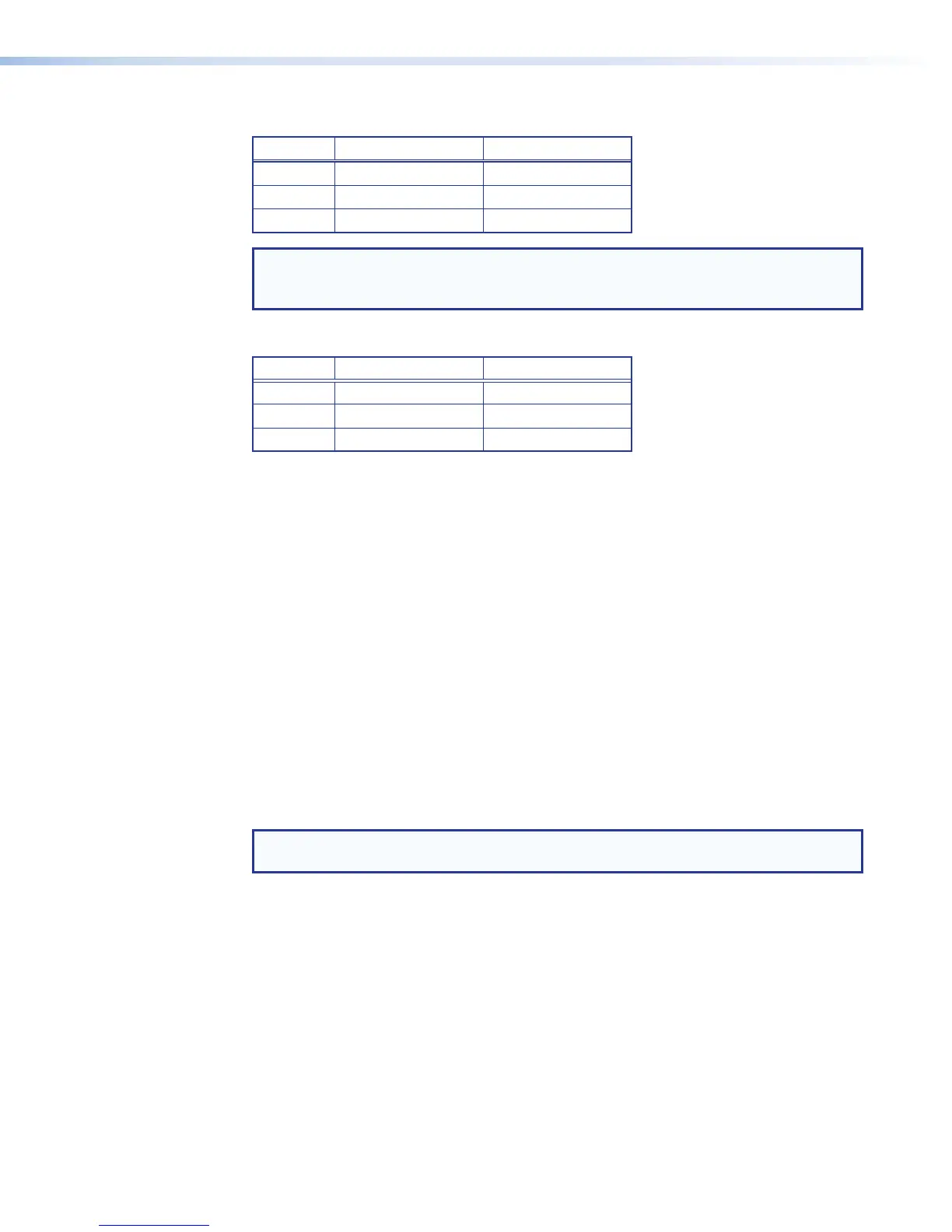The table below shows an example of a valid class C addressing scheme.
Device IP Address Subnet Mask
Device 1
208.132.180.41 255.255.255.0
Device 2
208.132.180.42 255.255.255.0
Device 3
208.132.180.43 255.255.255.0
NOTE: The host identifiers (41, 42, and 43 in the example above) do not need to be in
sequential or in any particular order. However, it is recommended that the numbers
are grouped for simplicity.
The table below shows an example of an invalid class C addressing scheme.
Device IP Address Subnet Mask
Device 1
208.132.180.41 255.255.255.0
Device 2
192.157.180.42 255.255.255.0
Device 3
208.132.180.41 255.255.255.0
Assuming the IP address for device 1 is valid, the IP address for device 2 is invalid because
the network identifier for each address must begin with 208.132.180.xxx. The IP address for
device 3 is invalid because it is using the same IP address as device 1.
The ping command can be used from a computer (see below) or from the Web interface
(see Ping Test on page144) to ensure that a device at an IPaddress is responding
correctly.
Using the Ping Utility to Test Communications
Use the ping command to test communications between a Windows-based computer and
another device on the same network.
1. From the desktop, select Start > Run.
2. The Run dialog box displays. In the Open field, enter ping nnn.nnn.nnn.nnn –t
(where nnn.nnn.nnn.nnn is the IP address of the device to test).
3. Click OK or press the <Enter> key. A window opens showing a series of response
messages (explained below).
4. To stop the ping utility, press <Ctrl> + <C> on the keyboard.
NOTE: The embedded Web page includes a ping utility (see Diagnostic Tools on
page143).
Response Messages
While running the ping utility, a series of response messages are displayed that are used to
determine the status of the communications link. For example, pinging a device with the
IP address 208.132.180.48 replies with a message similar to the following:
Reply from 208.132.180.48: bytes=32 time=2ms TTL=32
This is the correct response which indicates that the device at the specified address is
communicating correctly. The response time value may vary according to network traffic. If
one of the following messages are received:
• Request timed out — There has been no response from the specified address. Either
the processor is not receiving data (from the computer) or is not sending data back.
Check that the device is powered on and set to the same address that was pinged.
Also, check that the device is correctly connected to the network.
SMP351 • Reference Information 190
